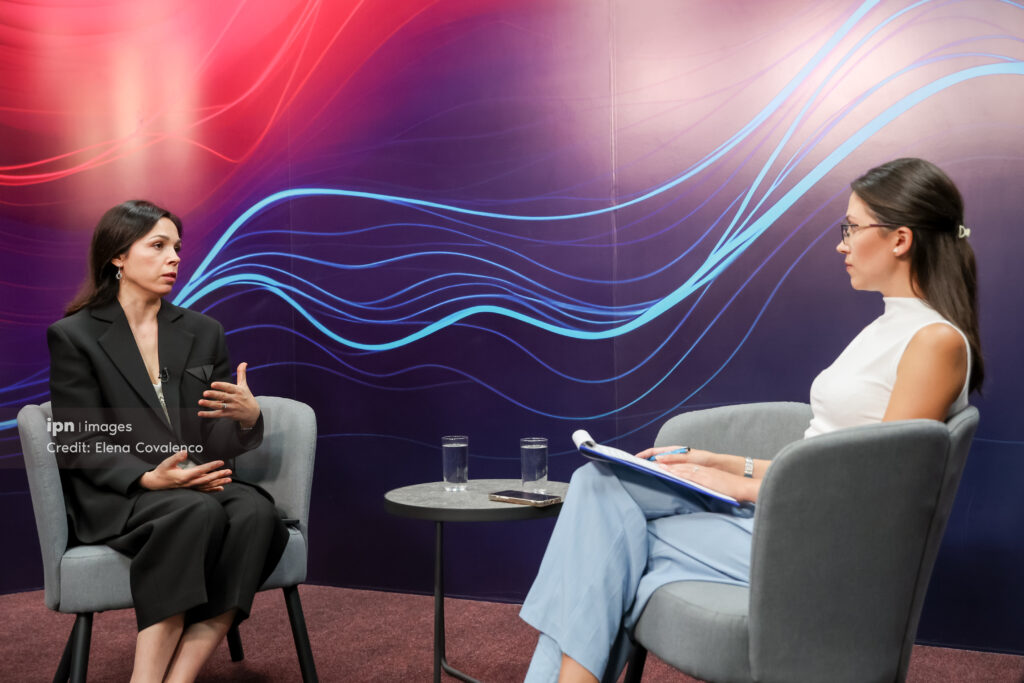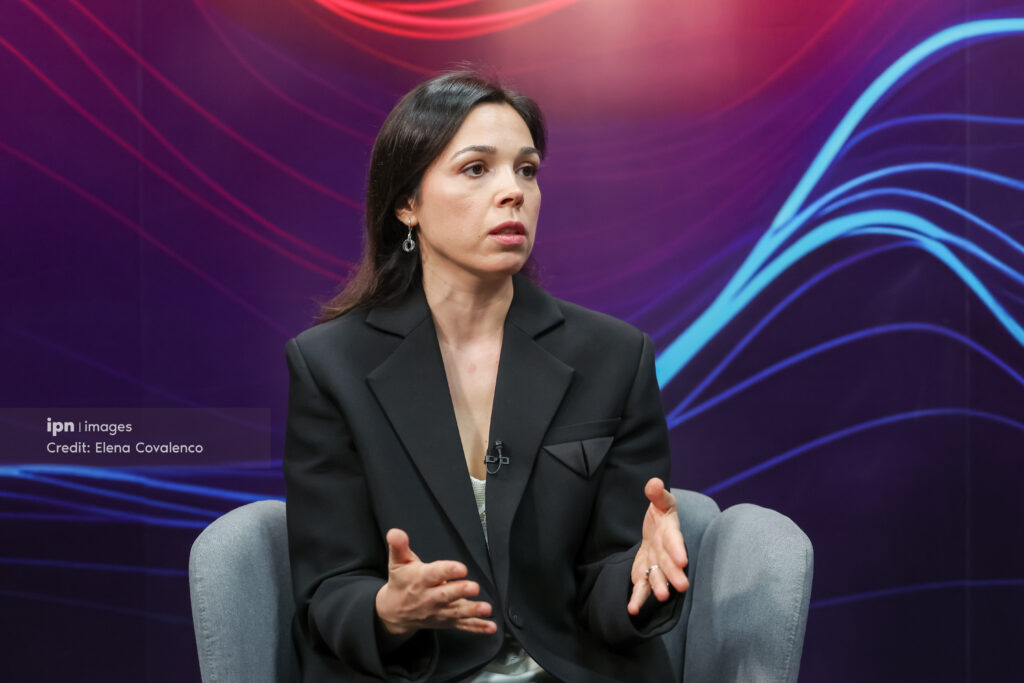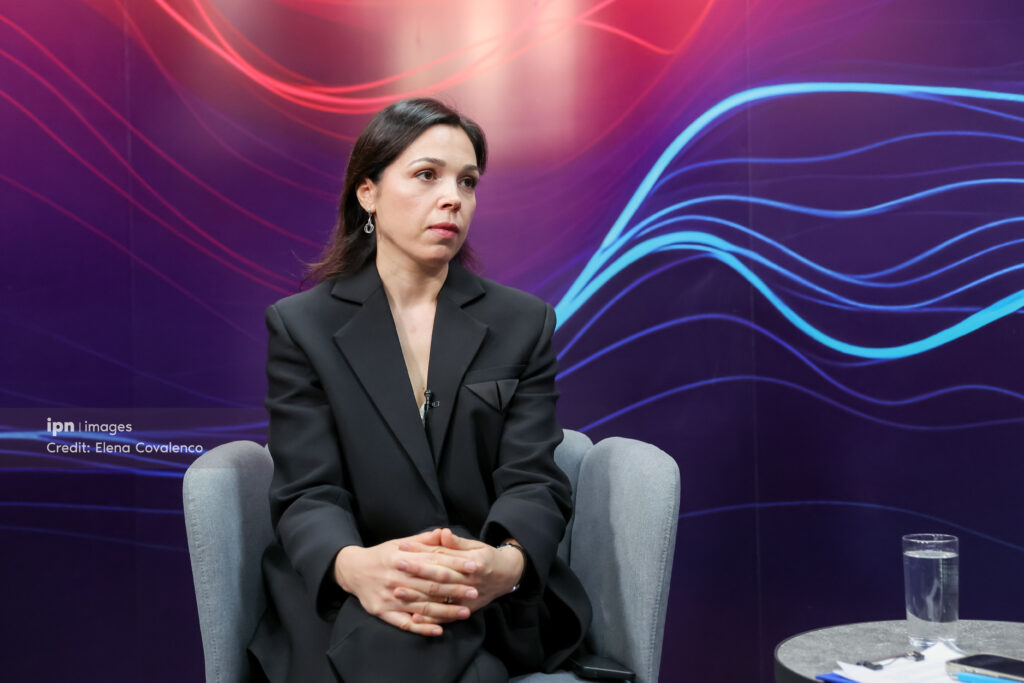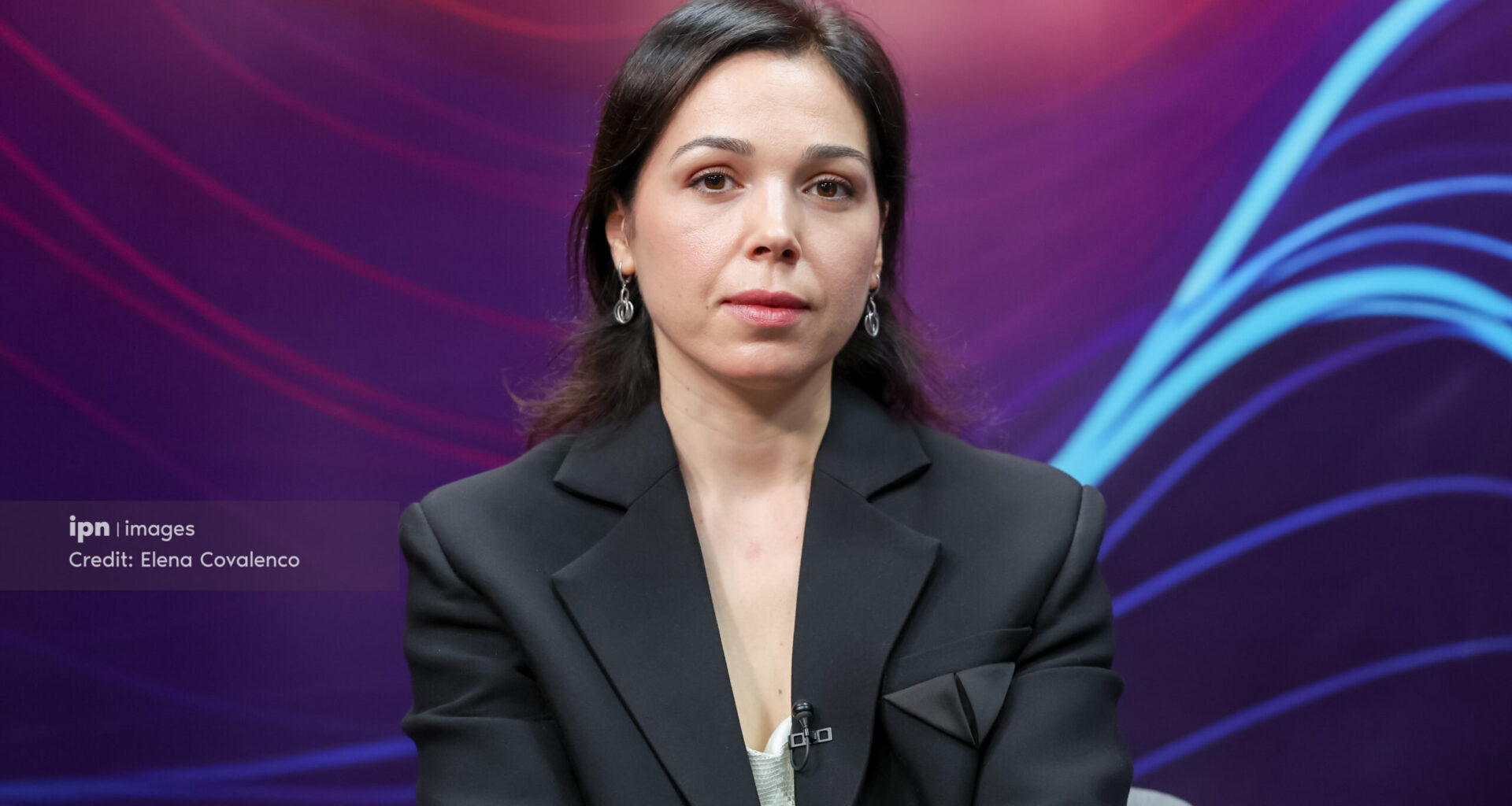The parliamentary elections on September 28, 2025, represent a crucial moment for the Republic of Moldova, as they are considered the most important in recent years, says Polina Panainte. In an interview for IPN, the secretary of the Civic Coalition for Free and Fair Elections spoke about the challenges of the electoral process, the role of civil society in monitoring the elections, and expectations for election day.
We are at the beginning of the election campaign for the parliamentary elections on September 28. What plans does the Civic Coalition for Free and Fair Elections, made up of non-governmental organizations with expertise in the electoral field, have for this election?
The Civic Coalition for Free and Fair Elections will closely monitor the election campaign this year, as it has done for the past 20 years. We have monitored the period leading up to the election campaign, and we will continue this effort to ensure that the campaign is conducted according to the rules, that the candidates comply with the legislation in force, and that all rules relating to behavior in the media and the relations between the candidates and the voters are properly observed.
There are over 30 organizations within the Coalition, each of us having a different niche of activity. Some of the organizations are directly involved in monitoring the electoral process, such as the ADEPT Association and the Promo-LEX Association. There are also organizations that look very closely at how the media provides equal space to electoral competitors and how online platforms are used in the election campaign.
Other organizations are also looking at the inclusiveness of elections and how the electoral process is open and fair to all voters. We are talking about people with visual impairments, hearing impairments, and people with mobility impairments. They look at how these people have access to information materials at polling stations and how they can fully participate in the electoral process.
Major risks: electoral corruption and external influences
Based on previous elections that have been monitored, what are your expectations for these elections, and what do you think could be the biggest challenges we might face?
I believe that this parliamentary election is the most important one we have had in recent times, because Parliament is the source of power in the state and we, as citizens, will elect those who will represent us in the coming period. This is where some very big risks lie for the coming period.
So both we, as a coalition, and society as a whole believe that all eyes are on this electoral process. And we are watching very closely to see how the integrity of the election will be ensured. With the 2024 elections behind us, in which electoral corruption was unprecedented, we are aware that this phenomenon continues on the eve of the parliamentary elections, and I believe that this is the main risk associated with this election.
Respectively, we, as non-governmental organizations, are watching very closely to see if the phenomenon persists, if its scale has decreased or not, because we have seen that the authorities have mobilized, we have seen that citizens are better informed, but at the same time we see that networks for corrupting voters persist, we see that other forms of manipulating voters are being attempted, to make them vote in a certain way, using illegal means.
I believe that this is the greatest vulnerability for this election, and we will continue to monitor this phenomenon. In addition to electoral corruption, of course, external influence, information interference, manipulation, and propaganda are also widely used tools in this election.
I feel like we are somehow running behind the cart. Tools adapt very quickly to new realities, and it is not always possible to monitor, intervene, and stop certain illegal phenomena that occur online.

These changes you refer to, I am referring to the tools used. On the other hand, those who are following these elections, the Coalition for example, what specific mechanisms are they using to keep their finger on the pulse?
The Civic Coalition for Free and Fair Elections is a platform of non-governmental organizations. We are individuals and organizations that have a neutral position in this process and have observer status. What we can do during this period is to closely observe what is happening and reflect our conclusions to the public.
As the integrity and electoral process are often called into question, citizens have many doubts about what is happening, and it is not always clear what the truth is. On the one hand, we have electoral competitors who say certain things about the elections and the authorities. On the other hand, the authorities present things from their perspective, through the way they manage the process, and citizens are somewhere in the middle, finding it quite difficult to understand what the truth actually is.
We try and hope that we manage to present a neutral, objective position, to present data and facts, to explain to citizens what is happening so that they can participate in the vote in an informed and conscious manner.
Of course, the Coalition’s activities also have an impact on the pressure that society puts on the authorities. As non-governmental organizations, we have a responsibility to keep an eye on how the authorities are performing, and when we identify shortcomings, gaps, or poor performance, we try to present these findings to the institutions concerned, in the hope that certain actions will be taken to improve the situation.
Pressure, intimidation, and protests against the CEC: “It is not acceptable to resort to harassment”
How would you assess the involvement of the electoral authorities so far, and is the Central Electoral Commission doing its homework properly?
From what we have seen so far, we can say that the CEC has performed admirably. The decisions taken have been very well justified and reasoned. We see a Central Election Commission that is efficient and transparent. The Commission’s website provides all the information we need, and we also see a Commission that is very responsive.
As NGOs, monitors, and observers of the electoral process, whenever we have questions or need clarification, the Central Election Commission has been open to providing these clarifications and discussing with us the questions we have regarding certain processes. I believe that this year, more than ever, the Central Election Commission is under attack because they are responsible for organizing the election and attempts are being made to undermine confidence in the electoral process.
So how is undermining done? By attacking those responsible for the process, saying that attempts are being made to rig the elections, that attempts are being made, I don’t know, certain tricks to achieve a certain result, and putting immense pressure on the Central Election Commission.
We see this in the protests organized at the doorstep of the authorities, which are free and comply with the legal framework regarding gatherings. It is acceptable for this to occur, but it is not acceptable to resort to personal attacks, intimidation, pressure, and harassment of election officials.
How can these elections be protected, including from these interferences, as the authorities say – external ones – be they media or financial?
External interference has even been acknowledged from a legal standpoint. Following last year’s elections, Parliament passed a resolution acknowledging that the elections had been affected by foreign interference. We saw a fairly good mobilization of the authorities after what happened in the 2024 elections.
As a result of this mobilization, several laws and government decisions have been adopted to protect the elections. It appears that many new tools have been developed, including more filters, more checks, and more responsibilities assigned to the authorities in order to prevent electoral corruption and foreign interference.
As civil society, what we can do is support resilience among citizens, talk about these things, so that we all understand that this is a persistent phenomenon. Perhaps from where we stand, it seems to each of us that there is no longer any interference, we see nothing, that’s how we get used to it on the street. However, from all the information we are provided with and that we can see with our own eyes, if we look closely at the online space in particular, we see a very well-organized campaign of interference from outside to manipulate this electoral process.
If we, as citizens, each of us, understand and acknowledge that there is a risk, that there is vulnerability, let us try to be more careful about the type of information we consume and let us try, yes, to ask ourselves questions, however, what is the truth and who and what purpose is being pursued by providing us with certain information, by organizing certain events?

Moldovan citizens are generally responsible and civically engaged
Let’s talk a little about voter information. Is the coalition organizing any campaigns in this regard for these elections?
As in the last 17 elections we monitored, one of the core activities is electoral information campaigns and “get out the vote” campaigns, mobilizing citizens to vote, encouraging them, talking openly about the responsibility that each of us bears when we vote. To this end, various organizations develop different types of public communication materials, videos, infographics, meetings with citizens, and meetings with young people.
But also discussions with citizens outside the country to bring closer these messages about voting responsibility and the importance of turning out to vote.
You mention that you have been following elections for many years. Has the public’s perception, involvement, and perhaps even curiosity about the importance of elections and voting changed?
I would say that the citizens of the Republic of Moldova are very civic-minded. We have always had a good turnout at the polls. For parliamentary elections, for example, at least one-third of voters must turn out to vote. We have always had a turnout of over 50% or even more, calculated from the 3.2 million voters who are in the Voter Registry, whom we know to be real voters, citizens from the country and the diaspora, who are slightly fewer in number. So, these more than one million people who come to vote in every election represent a significant percentage of the population interested in the future of the country.
However, there are certain groups of citizens who traditionally participate less in voting, and I would like to encourage young people here to vote more.
On the other hand, outside the country, Moldovan citizens who vote are younger, with the majority being between 18 and 40 years old, while in the country the majority of voters are over 60. That is why I believe we should ask ourselves where the young people of the Republic of Moldova are, those who reside in the territory of the Republic of Moldova, and encourage them to vote.
Moldova, close to EU accession: Elections, a crucial step
What are your expectations for election day—September 28? And are you optimistic about the fairness of the process?
I would like as many people as possible to vote on September 28, because, as I said, the parliamentary elections are the most important elections we have in this country. We are about to elect a parliament that will govern the country for the next four years, so every vote is very important.
We saw in last year’s referendum and presidential elections how close the electoral competition can be and how important every vote is, as it could make the difference. Political parties will enter Parliament and will then have to form a parliamentary majority in order to elect a government. That is why it is important for every citizen’s vision to be reflected in their vote, so that the parties that best represent the citizens of the Republic of Moldova enter Parliament.
I would like to see an election in which the candidates behave in a legal and appropriate manner, even during the election campaign. We would very much like to see ideas being discussed, issues and solutions to these issues being discussed, the future of the country being discussed, and fewer attacks. We see that these types of messages actually have the greatest appeal to the public: scandals, falsehoods, lies, hate speech. Instead of focusing on the most important issues for society.
I believe that the Republic of Moldova is in an unprecedented political situation, in the sense that we are very close to joining the European Union. European integration is enshrined in the Constitution of the Republic of Moldova as a strategic objective of the country. That is why we should focus all our efforts on discussing what we can do better and more correctly to make the integration of the Republic of Moldova into the European Union possible. In these terms, which are being talked about more and more, a limited period, an unprecedented period in the history of European integration of other states.

What are the Coalition’s next steps after the election campaign, on election day, and afterwards?
On election day, many of us are national observers of the electoral process. So we will go to polling stations, we will observe how the voting process takes place, we will comment on what is happening, and we will draw conclusions.
Immediately after the elections, we will issue a statement signed by all members of the Coalition, in which we will discuss our main findings. We will assess whether the elections were free and fair, taking into account several criteria related to OSCE and ODIR standards and international best practices. So we will look directly at the voting process, we will look at how the electoral authorities perform, we will look at the behavior of the electoral candidates, at the behavior of the observers, we will look at voter turnout, but also at how voting is organized abroad, voting for citizens residing on the left bank of the Nistru River.
All these observations together will form the text of the statement, and we will discuss the things that went well, but also the things that need improvement, because we believe that the electoral process is constantly adapting and needs improvement in order to respond as much as possible to reality.
I believe that after this parliamentary election, we, as a coalition, will sit down and analyze not only these elections, but all the elections that have taken place since 2023. We are talking about local elections, presidential elections, the referendum, and parliamentary elections. All of them took place under a new Electoral Code, a document that came into force in 2023, and we can already analyze all the things that went well and certain issues, gaps that need to be improved or revised to ensure a fair, free, and equitable electoral process that meets all expectations, both of the electoral candidates and the voters.
Irina Botu, IPN
IPN Note: This material was produced with the support of the Soros Foundation.
